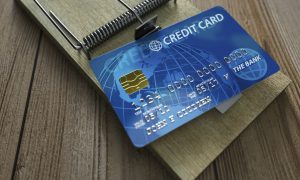9-In-10 Big Banks Strip Customers Of Their Right To Jury Trial
by Chris Morran, Consumerist
 If you ask someone on the street if they should have the right to sue their bank over something like an illegal overdraft fee, nearly everyone you speak to will invariably say yes. But a new report confirms that nearly all big banks are forcing customers to give up their right to a jury trial.
If you ask someone on the street if they should have the right to sue their bank over something like an illegal overdraft fee, nearly everyone you speak to will invariably say yes. But a new report confirms that nearly all big banks are forcing customers to give up their right to a jury trial.
This is according to researchers at the Pew Charitable Trusts, who looked at the customer contracts for checking accounts at 44 of the nation’s largest banks and found that 91% of them include jury trial waivers.
At the very least, that means that any legal dispute would be heard solely by a judge and not by a jury of the customer’s peers. However a further look at these contracts shows that customers are — often unwittingly — signing away their ability to even enter a courtroom in the first place.
According to the Pew data, 70% of these same banks have forced arbitration clauses, meaning you can’t have your case heard in a courtroom but must instead enter into binding arbitration before a third-party private arbitrator.
We’ve run down the problems with forced arbitration before, but the main concerns for consumers include:
- Potential Bias: Some of arbitration’s biggest defenders have admitted the process can be tilted in favor of the businesses that frequently use arbitrators.
- Secrecy:Arbitration often happens behind closed doors with all parties bound by confidentiality agreements. Thus, even if a company is found to have violated the law, the public may never know. This is one of the reasons that opponents of forced arbitration, like NYU Law professor Samuel Issacharoff have dubbed it a “get out of jail free card.”
- Limited Damages:As opposed to jury trials, where successful plaintiffs can be awarded substantial damages, arbitration awards are often very limited. This restriction makes it difficult for plaintiffs to find or afford quality legal representation. Similarly, some cases that are expensive to mount are rendered pointless because it would cost more to prove your case than you could possibly hope to win.
Continue reading on Consumerist.com
Tags: Banks, CFPB, Class Action, Forced Arbitration